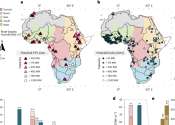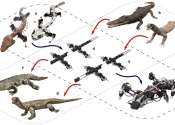RobotFalcon found to be effective in chasing off flocks of birds around airports
A team of researchers from the University of Groningen, the University of Tuscia, Roflight, Lemselobrink and the Royal Netherlands Air Force has designed, built and tested a robot named RobotFalcon fashioned to look and fly ...









